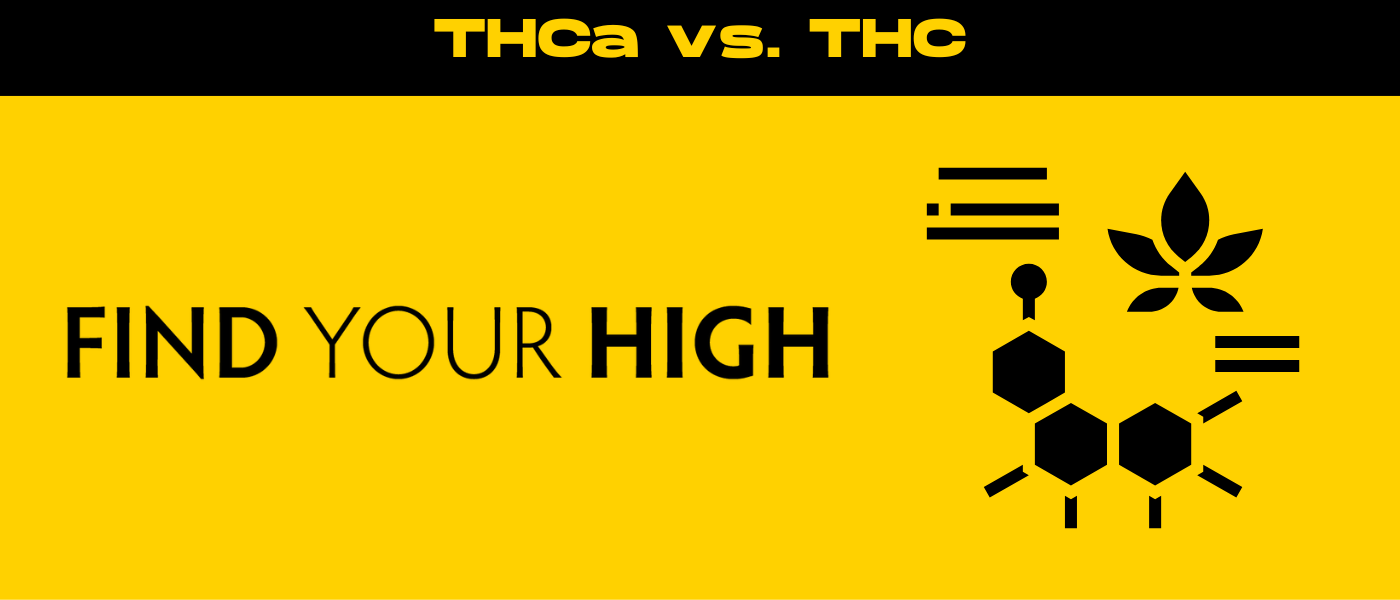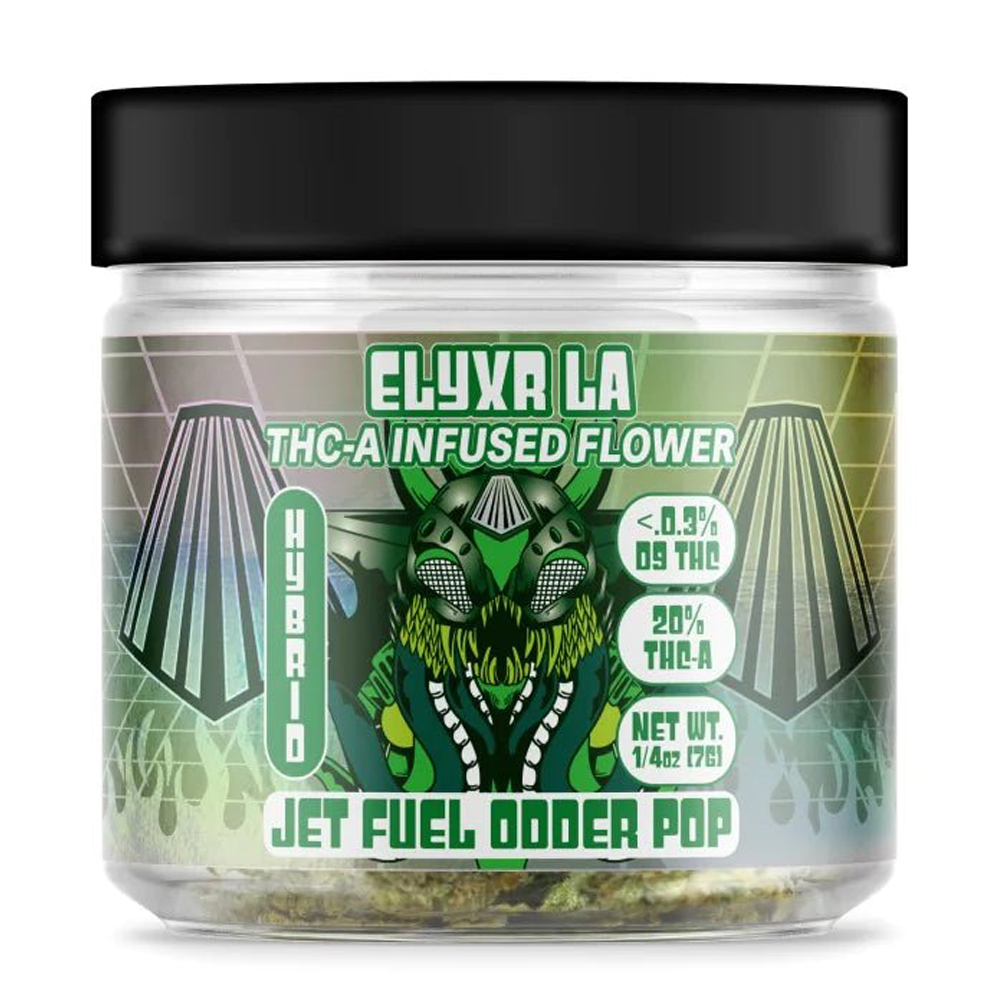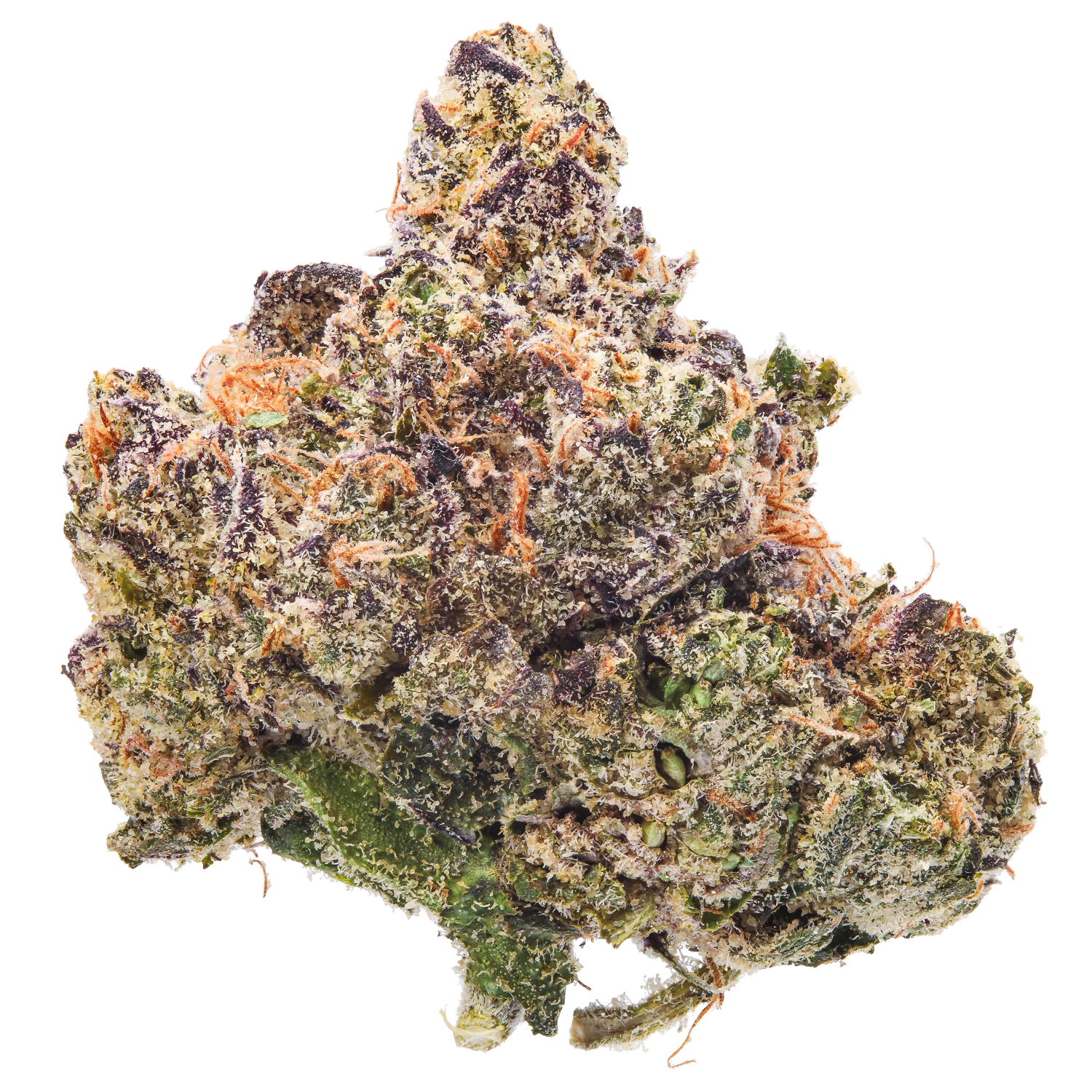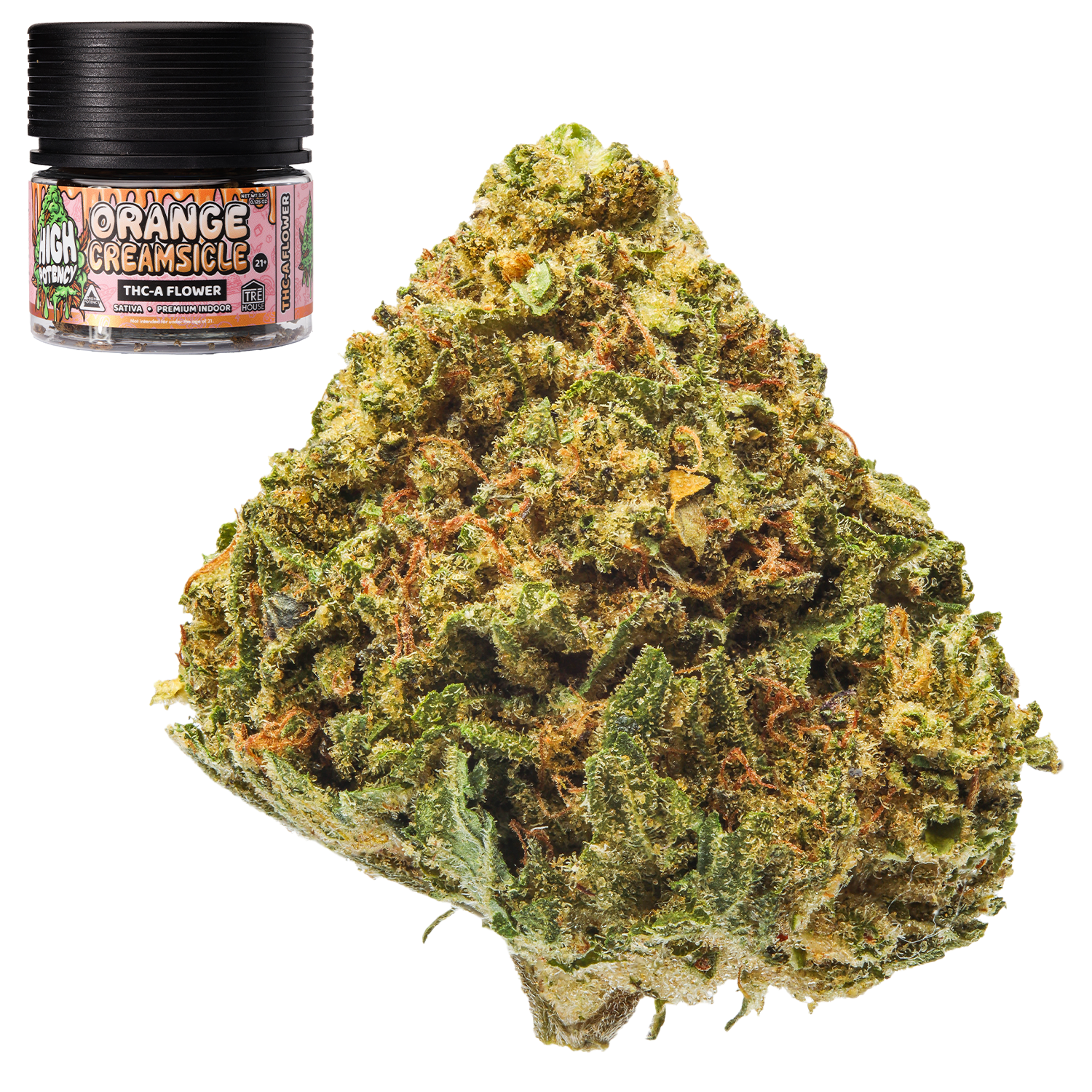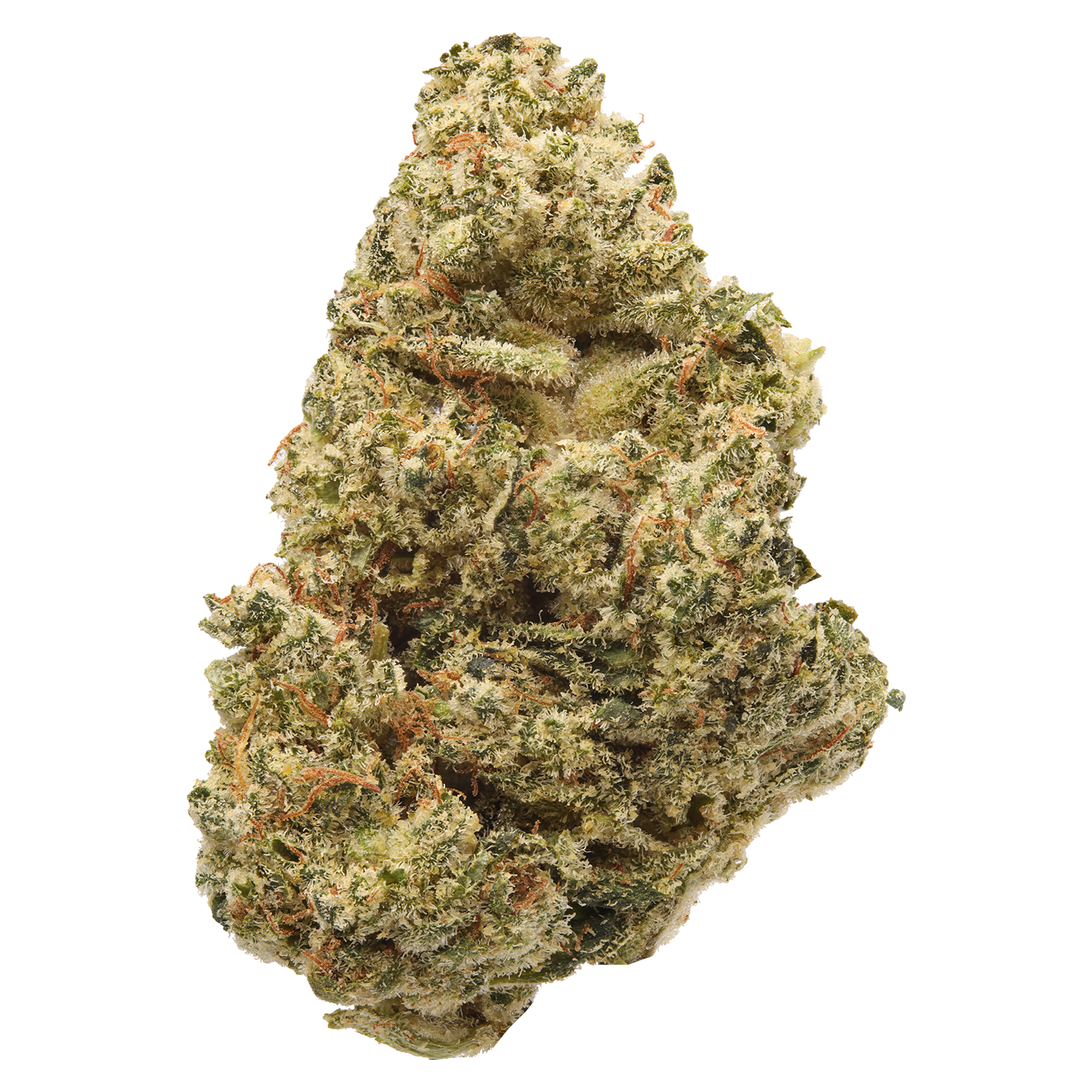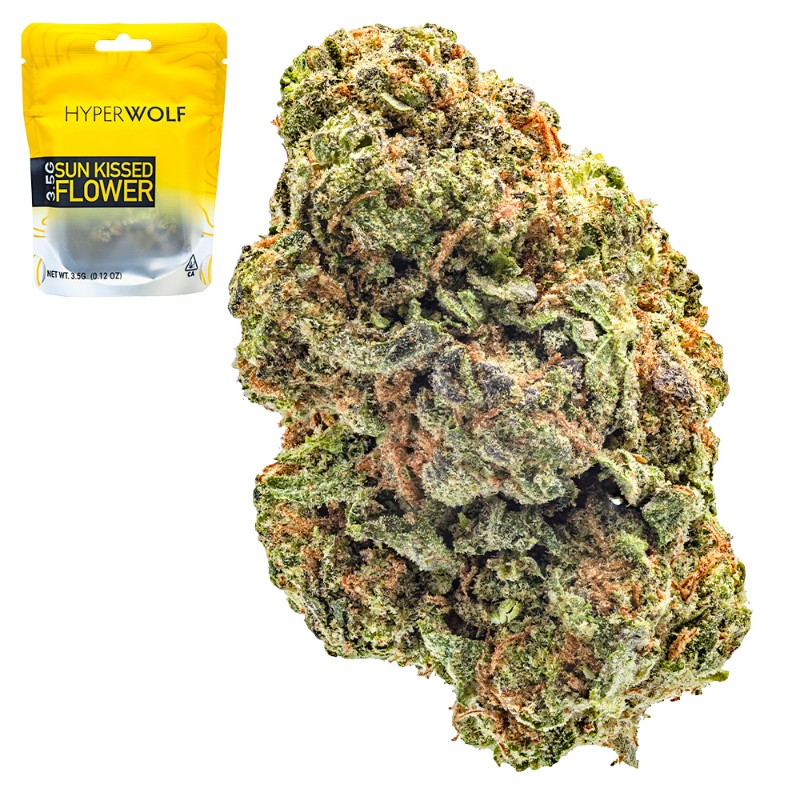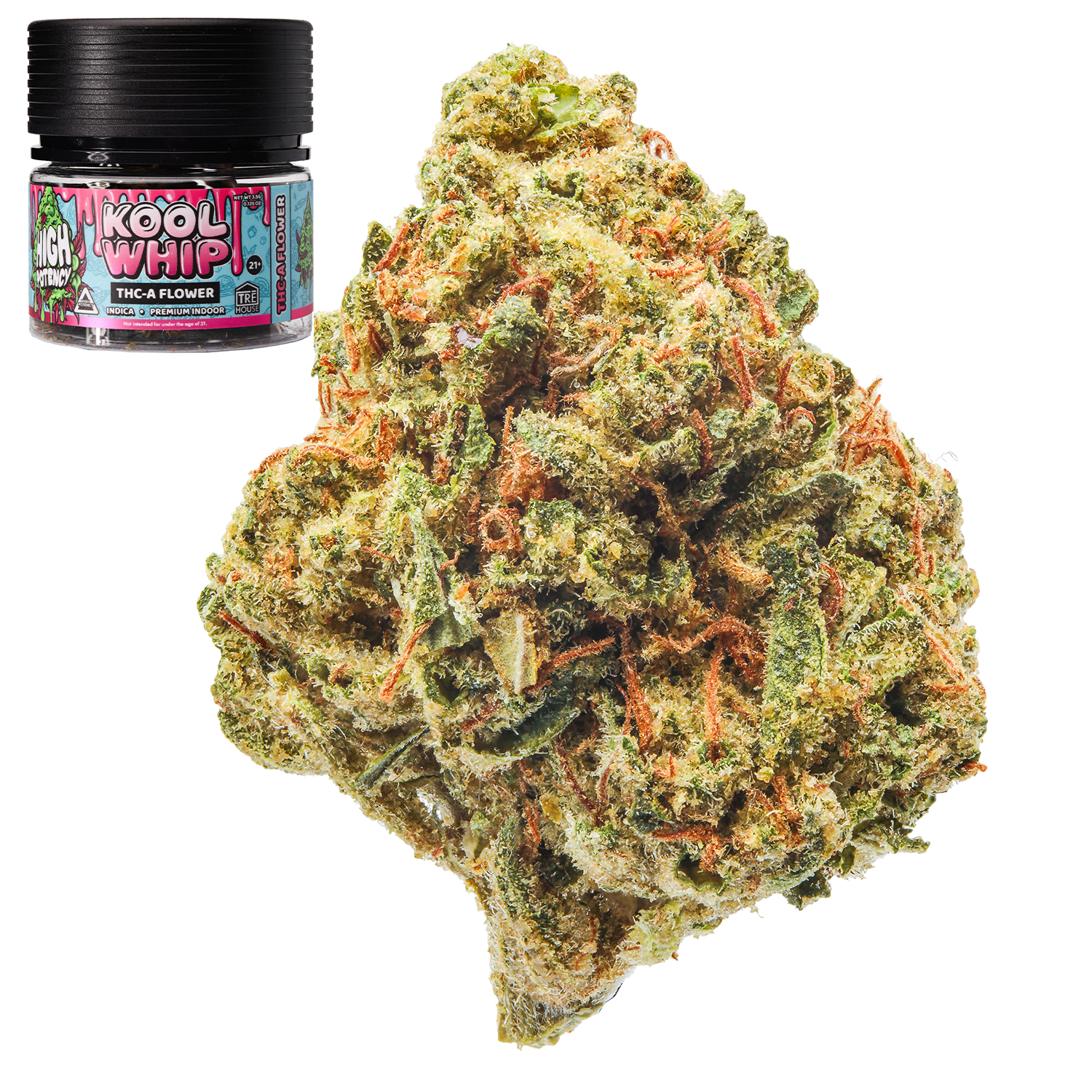Cannabis is a complex plant with a variety of active compounds that interact with the human body in different ways. Among these compounds, THCa and THC are two of the most well-known and commonly discussed cannabinoids. While they share a similar chemical structure, their effects on the body and their potential benefits are quite different.
In this blog, we will explore the differences between THCa vs THC in detail. From their chemical structures to their therapeutic applications and legal status, we’ll provide you with all the information you need to understand these two important cannabis compounds.
What is THC?
THC (tetrahydrocannabinol) is the most well-known and widely studied compound found in cannabis. It is the primary psychoactive compound responsible for the “high” associated with marijuana use. When consumed, THC binds to CB1 receptors via a chemical reaction in the brain and central nervous system, leading to a variety of effects on mood, perception, and cognition.
Key Effects of THC:
- Euphoria and relaxation
- Altered perception of time, space, and sensory input
- Increased appetite (the “munchies”)
- Potential impairment of memory and motor skills
THC has been extensively studied for its potential medicinal properties as well. It has been shown to help with pain, nausea, anxiety, and sleep disorders, making it a key component of both recreational and medicinal cannabis products.
What is THCa?
THCa (tetrahydrocannabinolic acid) is the precursor to THC. It is a non-psychoactive compound found in raw cannabis. Unlike THC, THCa (Tetrahydrocannabinolic acid) doesn’t produce any of the typical “high” effects, as it does not interact with the CB1 receptors in the brain.
THCa is abundant in fresh, unheated cannabis. It is considered to be inactive until it undergoes a process called decarboxylation, which removes a carboxyl group from the THCa molecule, turning it into active THC. This process occurs naturally when cannabis is heated—such as when smoking, vaping, or cooking.
How THC and THCa Are Related
The main difference between THC and THCa lies in their chemical structure. THCa has an additional carboxyl group (COOH) attached to its molecular structure. When heat is applied, this carboxyl group is removed, transforming THCa into THC, the psychoactive form.
This conversion process is known as decarboxylation, and it is crucial in making cannabis psychoactive. For example:
- Raw cannabis contains primarily THCa and has minimal psychoactive effects.
- Heated cannabis, such as when smoked or vaporized, converts THCa into THC, leading to the typical “high” associated with cannabis consumption.
Thus, THC and THCa are essentially two forms of the same cannabinoid, but their psychoactive properties depend on whether the THCa has been decarboxylated into THC.
Chemical Differences: THCa vs THC
While both THCa and THC are cannabinoids, their molecular structures differ slightly. The presence of the extra carboxyl group (COOH) in THCa is what makes it non-psychoactive. This small structural difference has a profound impact on how each compound interacts with the body.
Structural Differences:
- THCa: Contains an extra carboxyl group (COOH).
- THC: Lacks the carboxyl group, making it psychoactive.
When heat is applied, THCa undergoes decarboxylation, which removes the carboxyl group, transforming THCa into THC. This simple chemical change converts the compound from non-psychoactive to psychoactive.
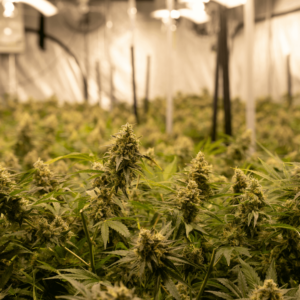
Psychoactive vs Non-Psychoactive Properties
One of the most significant differences between THCa and THC is their psychoactive effects.
THC (Psychoactive):
- THC binds to CB1 receptors in the brain, which leads to the typical “high” experience associated with cannabis.
- The effects of THC include euphoria, altered perception, and increased appetite, among others.
- THC is the compound that produces the intoxicating effects that users seek for recreational purposes.
THCa (Non-Psychoactive):
- THCa, on the other hand, does not interact with the CB1 receptors in the brain, meaning it does not cause a high. (Unless it is heated by means of smoking or vaping… which you’re likely to do anyways! Consider it a legal loophole.)
- However, THCa has been shown to offer potential therapeutic benefits, such as anti-inflammatory and neuroprotective properties, without the risk of psychoactive side effects.
The Effects of THC on the Body
When consumed, THC has a profound impact on the body due to its interaction with the endocannabinoid system (ECS). The ECS regulates a variety of physiological processes, and THC’s binding to CB1 receptors in the brain causes changes in mood, cognition, and physical sensations.
Common Effects of THC:
- Euphoria and relaxation: THC is well-known for its ability to induce a feeling of happiness, calm, and relaxation.
- Altered senses: THC can alter the perception of time, space, and sensory input, which is part of the reason why cannabis consumption can feel so unique.
- Increased appetite: Often referred to as the “munchies,” THC stimulates appetite, which can be beneficial for individuals dealing with conditions like cancer or eating disorders.
- Pain relief: THC can help manage chronic pain by interacting with the ECS to reduce pain sensations.
However, THC can also have side effects, especially for inexperienced cannabis consumers:
- Anxiety or paranoia, especially at higher doses
- Dry mouth and red eyes
- Impaired memory and coordination
The Potential Benefits of THCa
Though THCa is non-psychoactive, it has a range of potential health benefits that are being explored through ongoing research. While THCa doesn’t produce the high that THC does, it is thought to have therapeutic properties that can be beneficial for certain medical conditions.
Potential Benefits of THCa:
- Anti-inflammatory: THCa may help reduce inflammation in the body, making it useful for conditions like arthritis and muscle pain.
- Neuroprotective: Some studies suggest that THCa could offer protection to brain cells, potentially aiding in the treatment of neurodegenerative diseases like Parkinson’s and Alzheimer’s.
- Anti-cancer properties: Research has shown that THCa may have potential as an anti-cancer agent, inhibiting the growth of cancer cells in certain contexts.
Although much of the research on THCa is still in its early stages, its potential to treat a variety of conditions makes it an exciting area of study.
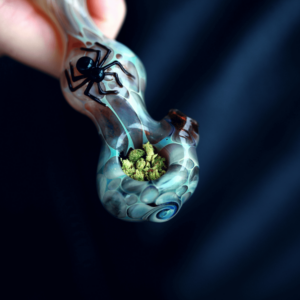
THCa and THC in Cannabis Consumption
How you consume cannabis plays a crucial role in whether you’re ingesting THCa or THC.
Raw Cannabis:
- Raw cannabis contains primarily THCa and minimal amounts of THC.
- Eating or juicing raw cannabis will allow you to consume THCa without experiencing the psychoactive effects of THC.
- Tinctures and cannabis extracts made from raw cannabis may also contain THCa.
Heated Cannabis:
- When cannabis is heated, such as when smoking vaping, or cooking, THCa is converted into THC, triggering the psychoactive effects of the cannabis plant.
- This decarboxylation process is necessary for cannabis to produce a “high.”
The Importance of Decarboxylation
Decarboxylation is the process that transforms THCa into THC. Without this process, you’re consuming cannabis that is primarily non-psychoactive.
This conversion happens naturally when cannabis is heated, whether during smoking, vaping, or cooking. For example:
- Smoking or vaping cannabis activates the decarboxylation process, turning THCa into THC and creating the psychoactive effects.
- Edibles require decarboxylation as well, which is why cannabis-infused foods often involve baking or cooking cannabis at a certain temperature.
If you’re seeking potential therapeutic properties from THCa, consuming raw cannabis is the only way to preserve its non-psychoactive properties.
THCa in Raw Cannabis: What You Need to Know
Cannabis in its raw form contains mainly THCa, which is why consuming raw cannabis doesn’t produce the intoxicating effects of THC.
- Raw cannabis can be consumed through juicing, tinctures, or even in salads.
- Juicing raw cannabis or using tinctures made from raw cannabis preserves the THCa and provides its therapeutic benefits without a high.
This growing trend of using raw cannabis is appealing to people who want the medicinal benefits of THCa—such as anti-inflammatory or neuroprotective effects—without the intoxicating side effects of THC.
THC: The ‘High’ Compound Explained
THC is the compound that creates the famous “high” associated with cannabis use. When THC is consumed, it binds to CB1 receptors in the brain, leading to a variety of psychoactive effects. These effects can include:
- Euphoria and relaxed mood
- Heightened sensory perception (e.g., more vivid colors, sounds, etc.)
- Altered sense of time
- Increased appetite (the “munchies”)
For many users, THC is the primary reason they turn to cannabis—whether for recreational or medicinal purposes.
How Does THCa Affect the Body?
THCa, while non-psychoactive, may still offer significant benefits for various medical conditions due to its anti-inflammatory, neuroprotective, and antioxidant properties. Unlike THC, THCa does not affect mood or cognition.
Possible Benefits of THCa:
- Anti-inflammatory: THCa could help reduce inflammation, making it useful for conditions like arthritis and muscle spasms.
- Neuroprotective: Some research suggests that THCa may protect brain cells from oxidative stress, potentially benefiting people with neurodegenerative diseases.
- Antioxidant: THCa’s antioxidant properties could help combat free radicals, which are linked to aging and various diseases.
Are THCa and THC Legal?
The legal status of THC and THCa varies depending on location.
THC:
- In many places, THC is still illegal or highly regulated due to its psychoactive effects.
- In regions where cannabis has been legalized for medical or recreational use, THC is often available in a variety of forms, including flower, edibles, tinctures, and more.
THCa:
- Since THCa is non-psychoactive, it is often legal even in places where THC remains restricted.
- Raw cannabis containing THCa (such as in tinctures or juices) is typically easier to access than products containing THC.
THCa vs THC: Which Is Better for You?
Choosing between THCa and THC depends entirely on your goals and preferences.
- For recreational users seeking a psychoactive effect, THC is the preferred choice.
- For medicinal users seeking therapeutic benefits such as anti-inflammation or neuroprotection without a high, THCa is an appealing option.
Both cannabinoids have their place in the world of cannabis, and your choice will depend on whether you want the intoxicating effects of THC or the medicinal properties of THCa.
Conclusion: THCa vs THC—Which One Should You Choose?
Understanding the differences between THCa and THC is essential for selecting the right cannabis product. THC is the go-to compound for those looking for psychoactive effects, while THCa offers therapeutic benefits without the high. By considering your goals—whether for recreation or medical purposes—you can make a more informed decision when it comes to cannabis consumption.
If you’re unsure about what’s best for you, it’s always a good idea to consult with a healthcare professional, particularly if you’re using cannabis for medicinal reasons.
Frequently Asked Questions
1. Is THCA the same as THC high?
No, THCa flower is not the same as the THC high. While THCa (tetrahydrocannabinolic acid) is a non-psychoactive compound found in raw cannabis, it does not cause the characteristic “high” associated with cannabis use. THC (tetrahydrocannabinol), on the other hand, is the psychoactive cannabinoid in cannabis that binds to receptors in the brain, leading to feelings of euphoria, altered perception, and other psychoactive effects. THCa must undergo decarboxylation (usually through heating) to convert into active THC, which is responsible for the high.
2. Does THCA turn into THC?
Yes, THCa turns into THC when it is heated or decarboxylated. In its raw form, cannabis contains primarily THCa, which is non-psychoactive. However, when cannabis is exposed to heat—whether through smoking, vaping, or cooking—the THCa loses a carboxyl group (COOH) and converts into THC, which is psychoactive. This process is essential for cannabis to produce the “high” that is typically associated with it.
3. Is THCA stronger than THC when heated?
No, THCa is not stronger than THC when heated. In fact, THCa is inactive until it undergoes decarboxylation, at which point it becomes THC. Once heated, THCa loses its non-psychoactive properties and transforms into THC, which is the active compound that causes the high. THC is considered the stronger of the two in terms of psychoactive effects, and it is responsible for the euphoric, intoxicating experiences that many people seek when consuming cannabis.
4. What is the benefit of THCA?
Although THCa is non-psychoactive, it offers a variety of potential health benefits, especially when consumed in its raw form. Some of the most notable benefits of THCa include:
- Anti-inflammatory: THCa may help reduce inflammation in the body, making it useful for conditions like arthritis or muscle pain.
- Neuroprotective: Early research suggests that THCa has the potential to protect brain cells, which may help with neurodegenerative diseases like Parkinson’s and Alzheimer’s.
- Antioxidant: THCa has antioxidant properties that may help fight oxidative stress, which is linked to aging and chronic diseases.
- Anti-cancer: Preliminary studies indicate that THCa could play a role in inhibiting the growth of certain cancer cells.
Because THCa does not produce the high associated with THC, it may be an appealing option for individuals who want therapeutic benefits without any intoxicating effects. However, it’s worth mentioning that THCa transforms into THC.




